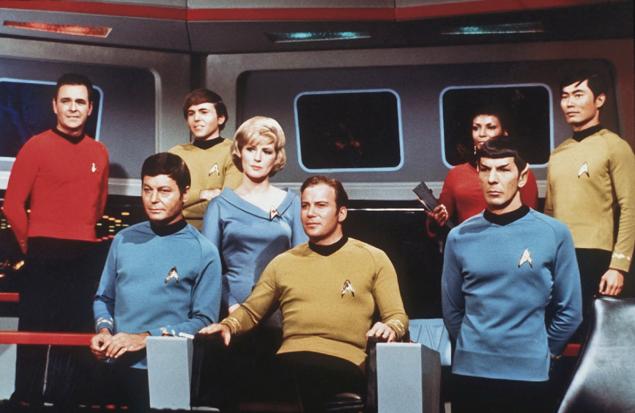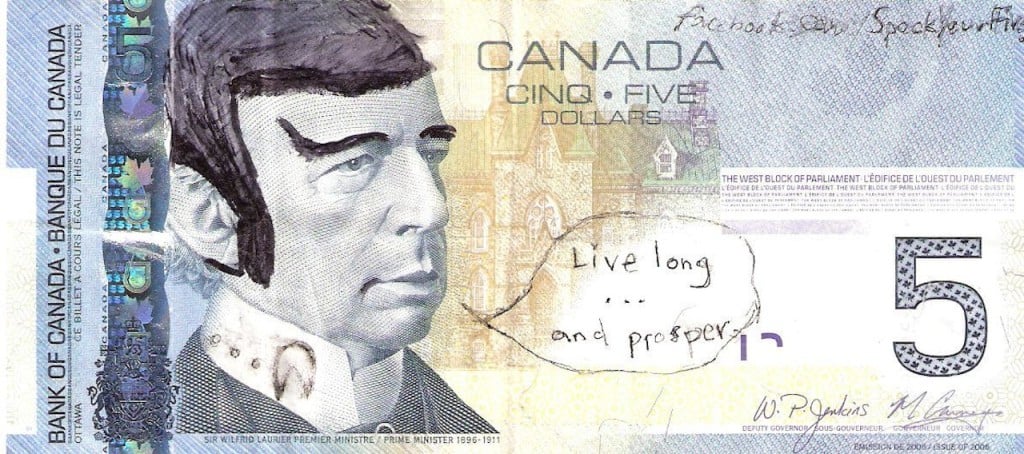Analysis
Why Is ‘Star Wars’ More Popular than ‘Star Trek’ on the Auction Block?
How do the markets for the two beloved sci-fi franchises compare?

How do the markets for the two beloved sci-fi franchises compare?

Sarah Cascone

With all the buzz about the upcoming Star Wars sequel, The Force Awakens, the beloved series has been nearly impossible to ignore lately, not only in the media but also in exhibitions. This fall alone, for instance, one could see photographer Dan Winter’s images of the Lucasfilm archive at the Conde Nast Gallery in New York, “Star Wars and the Power of Costume” at Discovery Times Square, and a show of Star Wars-inspired art at Los Angeles’s Gallery 1988. There was also a sold-out Sotheby’s auction.

Dan Winter’s photos of Star Wars objects in the Lucasfilm archive on view at the Conde Nast Gallery.
Photo: courtesy WIRED.
But what of Star Trek, the other great interplanetary 20th-century franchise? Surprisingly, the popular entertainment, known for its passionate, Klingon-speaking “Trekkie” fans, has a far smaller presence in the art and auction world.
At least two of the stars of the stars of the original Star Trek series have actually shown an interest in art. When Leonard Nimoy, who played Mr. Spock, died this February, he was remembered not just as a star of stage and screen, but also as a poet, musician, photographer, and art collector. (Canadians also “Spocked” their money in his honor.)
Star Trek‘s George Takei, who played Sulu, was quick to step in after widespread outrage when a historic collection of artworks created by Japanese-Americans interned during World War II was about to be sold piecemeal at auction. The actor, who himself spent time in internment camps as a child, helped find a new home for the collection at the Japanese American National Museum in Los Angeles.

“Spocked” Canadian currency.
Photo: via Facebook.
For what it’s worth, Force Awakens director J.J. Abrams was also behind the 2009 Star Trek reboot and its 2013 follow-up. A third installment, starring Chris Pine and Zachary Quinto, is due out July 2, 2016—the franchise’s 50th anniversary.
In 2006, Christie’s marked the 40th anniversary of Star Trek‘s television debut with “40 Years of Star Trek: The Collection.” The 1,000-lot sale, which toured Europe and the US, brought in $7.1 million over three days, with a visual effects model of the Starship Enterprise leading the way at $576,000.

The catalogue for the 1993 Star Trek costume auction from the estate of William Ware Theiss.
Photo: courtesy Butterfield & Butterfield, via Memory Alpha Wiki.
While the upcoming 50th anniversary might seem like a prime opportunity to stage an auction of similar scale, the 2006 sale actually followed the cancellation of the Star Trek: Enterprise television series, and was the studio’s way of clearing production materials out of their warehouses. The only other major auction connected to the series, of item from the estate of William Ware Theiss, costume designer for the original Star Trek television show, was held in 1993.
Star Wars auctions, however, seem to regularly make headlines: Princess Leia’s golden “slave bikini” was sold for $96,000 in October at a Star Wars sale at California’s Profiles in History auction house, and collectible action figures released in conjunction with the original films are big draws.

Princess Leia in her iconic gold slave bikini.
Perhaps the difference lies partly in the nature of the two franchises: some would argue that Star Wars, the so-called space opera, is science-fantasy, as opposed to Star Trek‘s pure sci-fi, with its plausibly realistic technology. With its flashier lightsabers and more varied costumes (how can a red shirt hope to compare with Queen Amidala’s wardrobe?), perhaps Star Wars has a natural edge.
So how can Star Trek step up its game? Stars Takei and Shatner both enjoy a unique brand of celebrity. Takei is known for his strong presence on social media, where he is known for supporting the rights of immigrants and LGBT issues—and bashing Donald Trump. Shatner is beloved for his Priceline.com spots and eccentric side career as a musician. The two of them must have some hidden Star Trek gems in their closets. And if either were to put out the call for art based on the franchise, the response would surely be huge.
With the release of Star Trek: Beyond just around the corner, it certainly seems like market ripe with possibility.